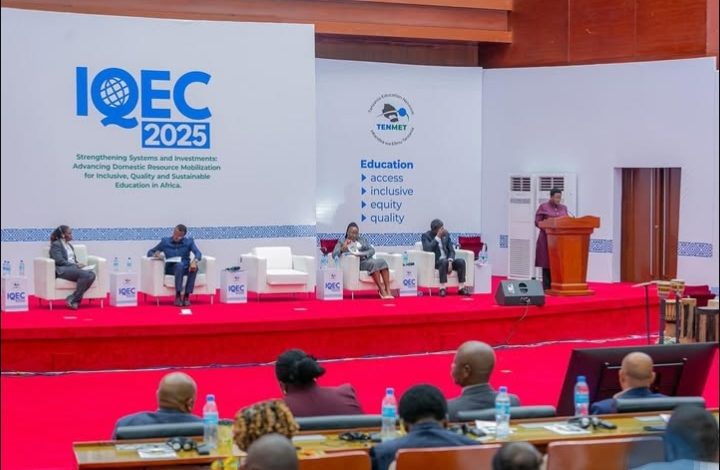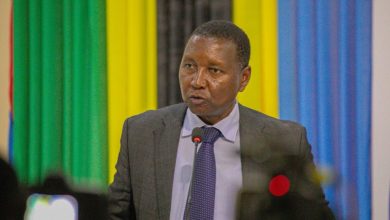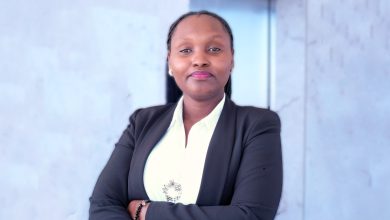IQEC Conference promises Tanzanians inclusive, quality education

DAR ES SALAAM: The government has insisted that no Tanzanian child will be left behind in the quest of acquiring inclusive, equity and quality education.
The pledge comes following a successful 5th International Quality Education Conference (IQEC) 2025 that climaxed at Julius Nyerere International Convention Center (JNICC) in Dar es Salaam on Friday.
Organised by the Tanzania Education Network (Ten/Met), the three-day conference brought together over 400 key stakeholders from 14 countries who deliberated on how to improve education sector on the continent.
In her official closing remarks, the Permanent Secretary in the Ministry for Education, Science and Technology (MoEST), Prof. Carolyne Nombo, insisted that no Tanzanian child will be denied access to quality education.
“As a government, we have put in place good mechanisms to ensure that all children who are capable of attending school do so without any challenges.
“Also, we will continue to invest a lot in teachers because they are the ones at the center of propelling this crucial sector, hence it is very important to invest in them.
“Already, the government has formed the Teachers Board, which will be used as an advisory entity to MoEST as well as safeguarding teaching profession ethics, plus overseeing refreshing courses to teachers,” she said.
Prof Nombo noted that such refreshing training programs will enable teachers to grasp technology and Artificial Intelligence (AI) skills so that they can withstand the dynamic education cycle.
She also elaborated that the government allocates 14 percent of domestic revenue specifically to finance sustainable education projects across the country as another method to advance education.
Furthermore, she pointed out that her ministry has put in place good mechanisms to help girls and children from underprivileged backgrounds to attain education easily.
She then seized the opportunity to call upon this year’s IQEC participants to put into practice whatever they have discussed so as to propel this crucial sector in the world.
Earlier, Ten/Met Board Chairperson Mr Simon Nanyaro commended the existing strong cooperation between the government and the Tanzania Education Network, saying it serves the interest of enhancing education.
“As Ten/Met, we appreciate this cooperation and we are hopeful that it will continue for many years to come so that together, we can drive forward education standards in the country,” he said.
He then urged attendees of the conference that everyone should play his or her role well, using the gained knowledge to advance education from the different capacities they serve.
On her part, Ten/Met National Coordinator Ms Martha Makala revealed that all participants of the conference commended the Tanzanian government and all stakeholders for the concrete actions in implementing the IQEC 2024 deliberations.
She said such actions were particularly in advancing girls education, promoting gender responsive budgeting, improving early learning, launching reforms like teachers’ continuous professional development and teachers’ profession boards.
“Additionally, we commend the Tanzanian government for developing a national education sector development plan in collaboration with key education stakeholders.
ALSO READ: Tanzania sees success in the 14% of its resources spent on education
“This reflects the country’s strong dedication to advancing inclusive and quality education across the country…all participants of IQEC 2025 affirm the importance of education as a pathway to dignity and opportunity, especially for marginalized learners across Africa,” she said.
Ms Makala continued: “All participants agreed that aid dependency leaves education systems vulnerable and agreed that low domestic financing to education affects vulnerable and marginalised learners.
“Currently, education spending in Africa averages 3.7 percent of GDP, which is below the recommended ratio of 4 to 6 percent, and participants have agreed that governments need bolder reforms and treat education as a strategic investment essential for sustainable development.”
In terms of call to action, she said, “We emphasize all governments in Africa to align their efforts with sustainable developments and the continental education strategy for Africa 2026 to 2035 and Agenda 2065.
“We urge governments in Africa to strengthen domestic resource mobilisation through progressing taxation, efficiency budgeting, and sound financial management to address critical gaps in basic education, special needs services, and availability of teachers in underserved areas.
“Governments should protect education budgets, adopt gender responsive budgets, plus leverage technology and innovations to reach vulnerable and marginalised learners,” she said.
Ms Makala added: “We emphasize African governments to treat education as a strategic investment towards economic development and align education financing with national priorities.
“Considering declining international aid, we urge governments in Africa to implement reforms through results-based financing and scale up domestic resource mobilisation via progressive taxation, efficiency budgeting, and sound financial management systems.”
In the same token, Head of Secondary Education, Access and Success at Mastercard Foundation, Ms Tracy Osuo, highlighted that the role of the private sector is to collaborate with governments and align with existing priorities.
“Our roles are not to replace what governments are doing but to rally behind the momentum that has been created, and here in Tanzania, we are excited to feel that momentum in this room,” she said.
Ms Osuo also underscored that deep reliance on donor funding leaves education systems fragile, hence urged stakeholders to seek domestic revenue mobilization.
“On behalf of Mastercard Foundation, we will remain committed to collaborating with MoEST to support equitable and inclusive education for all young people in Tanzania and the entire world,” she said.
Ten/Met is a national education coalition that brings together 245 education-focused Civil Society Organisations (CSOs) working to ensure inclusive, equitable, and sustainable education for every learner in Tanzania.





